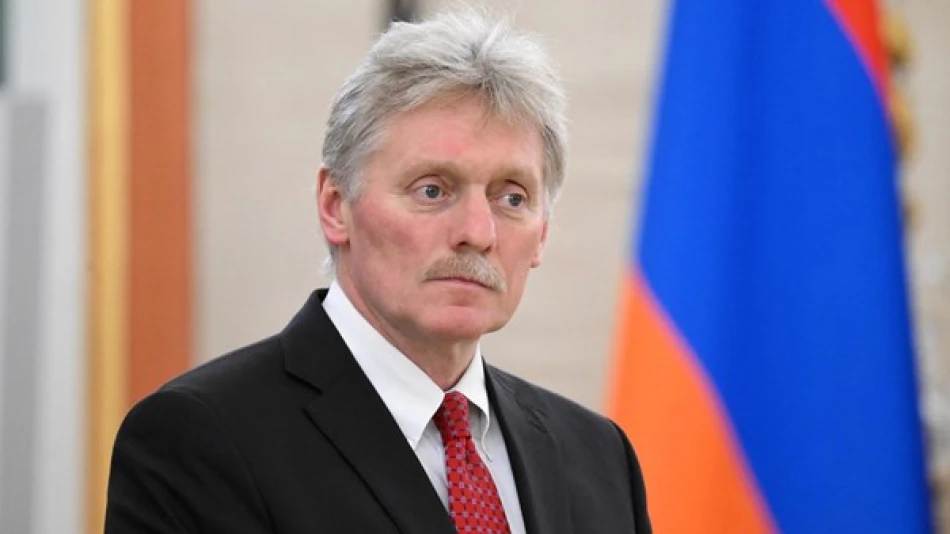
Russia Responds to Trump's Statements on Tariffs: Tension Escalates in Trade Dispute
Kremlin Weighs Response as Trump Threatens Russia Tariffs Over Ukraine Stalemate
The Kremlin signaled Tuesday that President Donald Trump's threat to impose tariffs on Russian goods within 50 days represents a serious escalation that requires careful analysis, while simultaneously accusing Western arms shipments of prolonging the Ukraine conflict rather than advancing peace prospects.
Moscow's Calculated Response to Economic Pressure
Kremlin spokesperson Dmitry Peskov described Trump's statements as "extremely serious" and indicated that President Vladimir Putin may issue his own response after thorough analysis. The measured reaction suggests Russia is treating the tariff threat as a genuine policy shift rather than mere negotiating rhetoric.
This approach mirrors Russia's historical pattern of deliberate escalation management, particularly when facing economic pressure from Washington. The 50-day timeline creates a specific deadline that forces both sides into a more urgent negotiating posture than the open-ended diplomatic efforts that have characterized much of the conflict.
Economic Weapons in a Prolonged Conflict
Trump's tariff threat represents a shift toward economic coercion as a primary tool for conflict resolution, moving beyond the sanctions regime that has defined Western policy since 2022. Unlike broad sanctions that target entire sectors, targeted tariffs could allow for more precise economic pressure while maintaining some commercial relationships.
For Russia, additional tariffs would compound existing economic isolation from Western markets. However, Moscow has spent nearly three years developing alternative trade relationships, particularly with China and India, which could cushion the impact of new US trade restrictions.
The Arms Supply Dilemma
Peskov specifically criticized continued weapons deliveries to Ukraine, arguing that decisions made in Washington and NATO headquarters in Brussels signal to Kyiv that it should "continue the conflict rather than pursue peace." This framing attempts to position Russia as the party seeking negotiated settlement while portraying Western military aid as an obstacle to diplomacy.
The timing of these comments coincides with ongoing debates within NATO about long-term military support for Ukraine, creating additional pressure on alliance unity as Trump applies his own diplomatic approach.
Diplomatic Positioning and Next Steps
Despite the escalatory rhetoric, Peskov reiterated Russia's stated willingness to engage in direct negotiations with Ukraine, claiming Moscow awaits signals from Kyiv about potential talks. This diplomatic positioning allows Russia to appear open to dialogue while maintaining its military pressure.
The 50-day timeline creates a concrete deadline that could either accelerate diplomatic progress or lead to further economic decoupling between the US and Russia. For markets, this represents a period of heightened uncertainty that could affect energy prices, agricultural commodities, and broader geopolitical risk assessments.
Trump's approach suggests a preference for bilateral economic leverage over multilateral sanctions coordination, potentially creating new dynamics in how the conflict evolves over the coming months.
Most Viewed News

 Layla Al Mansoori
Layla Al Mansoori






